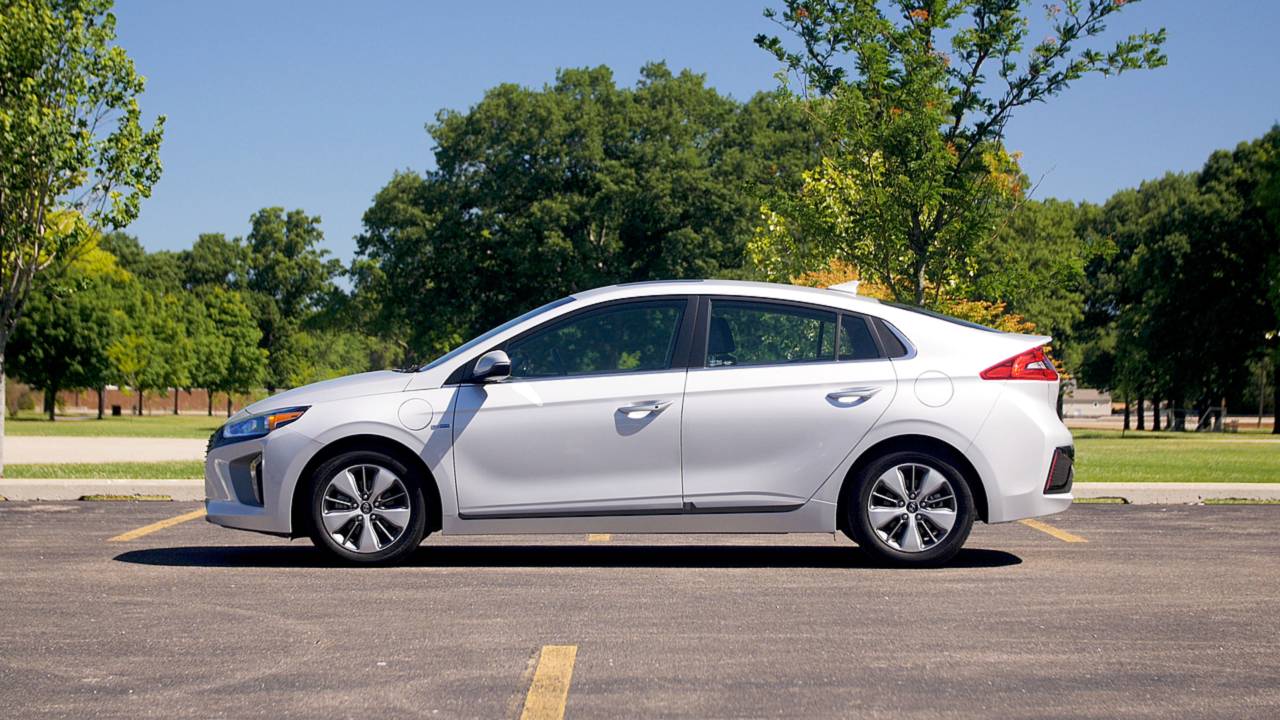– Ferndale, Michigan
Are you looking for a green car but aren't quite ready for a pure electric car? Then a plug-in hybrid may be the answer for you. These thrifty offerings pack traditional hybrid systems – a gas engine and an electric motor – but come with a rechargeable battery pack, providing enough electric range to cover the average commute, and impressive fuel efficiency overall.
The 2018 Hyundai Ioniq Plug-In is one of the latest. Like the other two members of the Ioniq family, it's calm styling and relatively normal driving character belie the fact that it's so advanced.
The Ioniq Plug-In still uses a 1.6-liter, naturally aspirated four-cylinder to produce 104 horsepower and 109 pound-feet of torque, just like the Ioniq Hybrid. It has a bigger electric motor – 45 kilowatts to the Hybrid's 30 – but the torque output is the same, at 125 lb-ft, as is the total system horsepower, at 139.
But where the standard Ioniq Hybrid has a meager 1.56-kilowatt-hour lithium-ion battery, the Plug-In gets a much heartier 8.9-kWh setup. That grants it up to 29 miles on a full charge, which we found more than usable for everyday tasks during our testing. Hyundai says a standard wall plug will recharge the battery in about 8.5 hours, although our tester was a little bit faster than that. And if you have access to a 220-volt outlet, a fully battery is available in just over two hours.
Despite this all-electric ability, the Ioniq Plug-In doesn't feel substantially different from the Ioniq Hybrid, or for that matter a gas-only compact sedan. It's not especially powerful, but the electric torque means passing maneuvers aren't a chore. And the ride is mostly comfortable for everyday use, although the outright handling ability is low. But for most consumers, that's not going to be an issue.
The Ioniq Plug-In is an excellent way to try out all-electric driving without taking the plunge for a full-electric car. To find out more, watch our latest episode of Why Buy.


